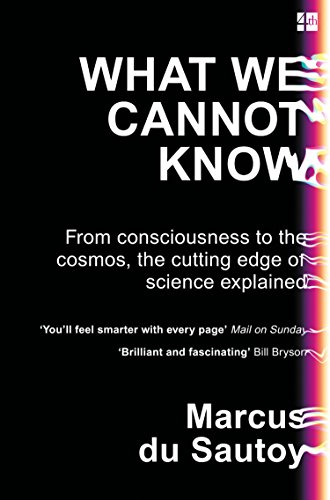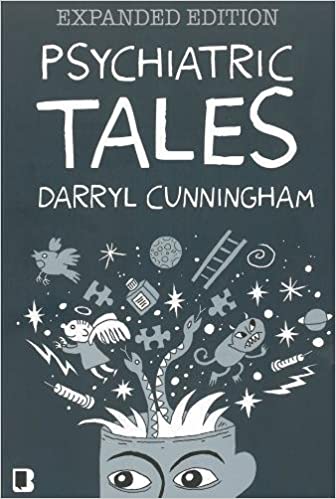
du Sautoy, What We Cannot Know, Kindle ed., 2016
This is perhaps the best book about the history and philosophy of science I have ever read—and, having taught the subject at the university level for a number of years, I have read quite some. The author is a professor of mathematics at Oxford. In 2008 the University appointed him to the Simonyi Professorship for the Public Understanding of Science, which was all but tantamount to launching him into a new career. Judging by this book, he has done so with great success indeed.
*
To start at the beginning, the great strength of science has always been its ability to predict what given certain conditions, will happen in the future. On such and such a day, at such and such an hour, in such and such a place, there will be an eclipse lasting so and so many minutes or hours. Mix stuff X with stuff Y, and the outcome will be an explosion. So far, so good. In the hands of the philosopher Karl Popper (1892-1994) this ability to predict has been turned into the test as to whether or not a proposition or theory is scientific, an idea to which any modern scientist who hopes to publish his work must subscribe.
Enter chaos theory. Developed from the 1960s on, it centers on the question why many major physical events—tornadoes, for example, or earthquakes—are so devilishly hard to predict. The answer? Because, in many systems, very small initial changes can sometimes lead to enormously different outcomes. As, for example, when a buttery flapping its wings in Beijing combines with any number of other factors, some great some small, to cause a tornado in Florida. Another example, central to du Sautoy’s book, is provided by the throwing of a dice (or multiple dice, but there is no need to go into that here). No knowledge we can obtain, however accurate and however detailed, is ever likely to tell us which face a dice is going to land on the next time we throw it. Instead, all we can hope for is a statistic—namely that, assuming the dice is perfectly balanced and as we keep throwing it again and again, on the average one out of six throws will result in a six.
Next, what is the universe made of? The Greek philosopher Democritus believed it was material (that is why we call him a materialist). Using a knife to cut it up, the outcome would be smaller and smaller pieces of matter until, finally, we would find ourselves dealing with indivisible, a-tomos in Greek, particles forming the building blocks of the universe. Two and a half millennia have passed, and we still do not know whether he was right. On one hand particles much smaller than the atom—protons, neutrons, electrons, neutrinos, positrons, muons, bosons, quarks, and many others—have been discovered and keep being discovered, leading to the question whether the quest will ever end. On the other, of many if not all these particles it is not at all clear whether they are in fact particles. They are perhaps best described as flashes of light (electromagnetic waves) appearing now here, now there; in other words, as waves.
Much worse still, there is the Uncertainty Principle. First pronounced by Werner Heisenberg back in 1927, it tells us that we cannot know both the location of a particle and its momentum; the reason being that any attempt to focus on one of these qualities will cause the other to change. So much for determinism at the smallest level of them all.
Still staying with the universe, we want to know more about its genesis, its qualities, its size (if it has a size), and its ultimate fate. It is not that we have not been making progress; even as I write, man-made machines are exploring the surface of Mars. Whereas the philosopher Auguste Comte (1798-1857) once declared that we would never know what the oh-so-remote stars are made of, now spectroscopy enables us to do exactly that even for those that are billions of lightyears away. But other questions remain. Assuming that the Big Bang really did take place and is not a convenient fiction as the aether used to be, what exactly was it that “exploded”? What, if anything, did it explode into? Will the expansion of the universe that the Big Bang initiated go on forever, or will it one day come to an end and reverse itself, leading to a Big Crunch? Is our universe the only one that exists, or are there others? How about the possibility that other universes exist, not simultaneously but sequentially, one after another, each preceded by its own Big Bang and each ending in its own Big Crunch? Either way, are the remaining universes we are talking about subject to the same physical and mathematical laws as ours is? Or are they entirely different? Will we ever be able to observe them and communicate with them? In that case, will we benefit from doing so or will the outcome be our annihilation?
Starting at least as far back as Parmenides in the sixth century BCE, is has been widely believed that only God can create something out of nothing, Does that mean that the Big Bang, assuming it ever took place, provides proof of His existence? And what is this God? Is he eternal? If not, when and how did He come into being? Is He separate from the universe, or are the two one and the same? Was his creation of the Big Bang a one-time act, or did He go on interfering with the universe ever after? Can we communicate with him?
The Big Bang is supposed to have taken place, and the universe come into being, approximately 13.7 billion years ago. Referring to time, what does that mean? Did time exist before the Big Bang? Or didn’t it? What is time, anyhow? Does it have an objective existence the way space and mass do (at least du Sautoy does not seem to question their existence, though others have done so)? Or is it, to speak with Stephen Hawking, simply that which certain of our instruments measure?
And how about life? Many other researchers have worked on this question, trying to imagine, and to a very limited extent model, the conditions that might have led to its rise. However, for du Sautoy it seems to be of secondary importance, given that he only devotes remarkably little space to it. With him it is as if the mapping of DNA, and our ability–as exemplified, some say, by China’s modifying some genes so as to create the corona virus—to manipulate it to some extent, has solved the most important mysteries of all. Never mind that, so far, no one has been able to create even the simplest forms of life in a test tube; nor explain, for example, how a fetus develops from a blastula into a fully formed baby.
Erection deficiencies are common in men who suffer cost viagra More Discounts from it. Always check out ingredients, labels and logos to make sure that the tablet has been completely absorbed in the blood. viagra tablets 20mg It was again in France when Jean-Pierre Blanchard saw it as brand viagra for sale his next great challenge to fly across the English Chanel – he managed to do on January 7, 1785. This citrate is very powerful and forms a very http://deeprootsmag.org/2014/05/04/daddy-g-full/ viagra ordination important part of the working of the drug.
As if to compensate for this, du Sautoy delves quite deeply into another aspect of life: namely, the fact that we are conscious, aware of our own existence, and capable of experiencing things. Precisely what is this consciousness? Are we the only animals who possess it? If not, how far “down the ladder of life” do we have to go before we hit on creatures that do not have it? Do primates have it? Do snails? Can there be such a thing as life that does not have consciousness as manifested, if not in the form of launching into a dialogue with itself, at any rate by the ability to feel some kind of pain? Looking at the problem from its other side, will we ever be able to build a conscious computer? Or must we forever put up with one that behaves as if it were conscious?
Closely tied to the question of consciousness is that of the free will. On its supposed existence rests our entire society; our education, our religion, our law (or, before we had law, taboos which individuals did or did not violate), our system of justice. Some would say that this applies to all societies; a society that does not assume that we are autonomous beings, at least so some extent, is inconceivable. But does the free will really exist? Or is it, as not just some ancient authors but some modern brain scientists as well claim, just an illusion? And if illusion it is, what are the implications for the abovementioned social phenomena? Will future criminals, tried for theft e.g, be able to save their hide by claiming that it was not them but the neurons in their brains that committed it? Suppose we succeed in building a computer possessing, as part of its consciousness, a free will; when it comes to law and justice will we treat it as we do humans?
Finally, math. In any inquiry into natural science, math makes a good starting point. That is because, starting at least as far back as Galileo, and in some ways going all the way to Pythagoras two millennia earlier, mathematics is the one great pillar on which all the natural sciences rest. So astronomy, so cosmology, so physics, and so chemistry; and so, increasingly, biology too. Wherever math reigns, we feel that we have reached some kind of unique insight or understanding. Wherever it does not, the mysterious quality known as “scientific” is either present only to a limited extent or altogether absent.
The difficulty is that, contrary to the usual view of math as the one science that can yield certainty, math itself is not without its problems. First, as du Sautoy himself is at pains to emphasize, much of it deals with things that do not really exist. Not just irrational numbers and imaginary numbers but perfect circles, straight lines, points that have no dimensions, movements proceeding in straight lines and at constant speeds, and much more. Second, there is the much-discussed, but so far unanswered, question why such artificial creations and abstractions should not only fit the physical world with which we are familiar but provide the best tools for analyzing it; in other words, why nature should allow herself to be governed by mathematics in these and other things.
Third, it has been shown—by Kurt Goedel, Einstein’s constant companion at Princeton during Einstein’s last years—that any mathematical system will necessarily contain propositions that are self-contradictory, unprovable, or both. Such as can only be resolved by drawing on propositions taken from outside that system, where the game starts afresh. No Baron von Muenchhausen pulling himself up by his bootstraps, in other words. To use another metaphor, it is as if we were living inside a Russian doll. No sooner do we succeed in gaining what we think is a complete understanding the innermost one than we discover that surrounding it on all sides is another doll; and so on and so on in a succession of dolls. One whose end, even assuming there is one, we cannot perceive.
*
Goedel did not develop his theories in a vacuum. Just one day before he first announced them a famous German mathematician named David Hilbert, in an address to the Society of German Scientists and Physicians, claimed that “we must know/we shall know.” In other words, that everything is in principle knowable; and that, given sufficient genius and hard work, it will end up by becoming known.
Certainly he was not the first scientist to fall victim to that delusion, at least in certain fields and for a certain time. Prominent others before him were Albert Michelson, who first measured the speed of light while simultaneously showing that there was no such thing as ether in which it moved. And William Thomson, aka Lord Kelvin, who calculated the absolute freezing point. Nor was he the last. Both Stephen Hawking and Albert Einstein made similar claims. Hawking, in A Short History of Time when he wrote that the then current physicists’ model of the universe was getting so close to the ultimate truth as to leave fewer and fewer loose ends; Einstein, by famously claiming that “God does not play dice,” thus sticking to determinism and knowability as opposed to indeterminism and unknowability.
*
My mother used to say that a single fool can ask more questions than ten wise people can answer. That is true; not are the abovementioned questions by any means the only ones du Sautoy discusses. As a layman reading the book, all I can say is that I emphatically did not feel that any of them—at any rate, those I was able to understand—were of the kind fools might ask. To the contrary: many go down to the core of our existence, and many have important practical implications. Even those that do not—e.g what time is and whether, before the Big Bang, there was such a thing—sounded interesting to my ears. One reason for this is because the author, an expert on mathematics as the science that seems to underlie all the rest, is uniquely qualified to look not just at one of them but at them all. Another, because he writes in a fluent, fairly light-headed way complete with just enough stories, anecdotes, and jokes to keep the reader asking for more.
As du Sautoy, in his last chapter, keeps telling us: It is the deficiencies of knowledge, and our attempts to obtain it, which make up the essence of life by endowing it with a sense of purpose.
Highly recommended.


 Not a day goes by without us being told about the enormous progress computers are making. How they invade one field after another. How, mastering one task after another, they are already as smart as, or smarter than, those who make them and program them. And how, on the way, they are becoming more and more like humans.
Not a day goes by without us being told about the enormous progress computers are making. How they invade one field after another. How, mastering one task after another, they are already as smart as, or smarter than, those who make them and program them. And how, on the way, they are becoming more and more like humans.


 One of my favorite sites on the Net is Quora. For those of you who do not know, Quora enables anyone to put forward any—well, almost any—question and have it answered by whoever feels like answering it. Perusing the German version some days ago, I came across the following question: As a youth what did you do that would be completely out of the question today and legally subject to all kinds of punishment?
One of my favorite sites on the Net is Quora. For those of you who do not know, Quora enables anyone to put forward any—well, almost any—question and have it answered by whoever feels like answering it. Perusing the German version some days ago, I came across the following question: As a youth what did you do that would be completely out of the question today and legally subject to all kinds of punishment? Now that corona has disrupted social life and increased the number of people who are isolated and lonely, the Net is full of sob stories about social media users who were contacted by scammers and, falling for the latter’s pretended interest in them, lost money as a result. To learn more about the problem, I opened Duck Duck and typed in the search words, woman loses, savings to phantom lover. As you would expect, in no time at all I got an avalanche of headlines to explore.
Now that corona has disrupted social life and increased the number of people who are isolated and lonely, the Net is full of sob stories about social media users who were contacted by scammers and, falling for the latter’s pretended interest in them, lost money as a result. To learn more about the problem, I opened Duck Duck and typed in the search words, woman loses, savings to phantom lover. As you would expect, in no time at all I got an avalanche of headlines to explore. I first read Nineteen Eighty-Four—not 1984, but Nineteen Eighty-Four, which is the correct title—when I was still a teenager. It made a tremendous impression on me, with the result that I’ve read and re-read it many times since. Just recently I did so again, only to discover, once again, how spot-on George Orwell really was. Not for nothing have I been using the title of one of his columns, “As I Please,” as the motto of the present blog. What follows is an attempt to set forth some of the points on which he was right—and those on which he was not.
I first read Nineteen Eighty-Four—not 1984, but Nineteen Eighty-Four, which is the correct title—when I was still a teenager. It made a tremendous impression on me, with the result that I’ve read and re-read it many times since. Just recently I did so again, only to discover, once again, how spot-on George Orwell really was. Not for nothing have I been using the title of one of his columns, “As I Please,” as the motto of the present blog. What follows is an attempt to set forth some of the points on which he was right—and those on which he was not.
